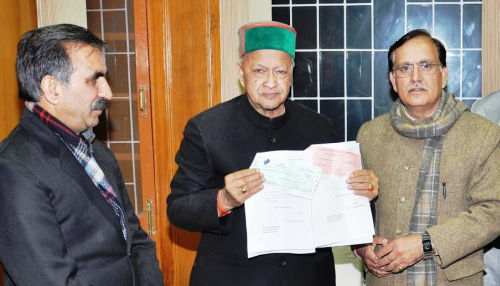Shimla – In a strategic move to address staff shortages and reduce governmental expenses, the administration has introduced new terms and conditions for the reappointment of retired officers and employees. Principal Secretary Finance Devesh Kumar has issued an order that specifies these guidelines, focusing on fiscal prudence while leveraging the experience of retired personnel.
Key Provisions of the Order
- Remuneration Cap:
- Retired employees who are reappointed to positions within categories one to three will receive a remuneration of 40% of their last drawn basic salary.
- Positions under these categories include class IV multi-task workers, class III office assistants, and class I and II work supervisors.
- For specialized categories such as doctors, engineers, and consultants, the remuneration will be capped at 50% of their last basic salary.
- Tenure and Termination:
- The tenure of reappointment will be determined by the government, with the possibility of extensions up to one year at a time.
- The government reserves the right to terminate the contract before the end of the period if the services are deemed unnecessary or if the performance is unsatisfactory.
- Allowances and Benefits:
- The fixed remuneration does not include dearness allowance (DA).
- Reappointed employees will be entitled to travel allowance (TA), DA, and leave as per norms applicable to outsourced employees.
- No additional medical facilities will be provided as retired employees are already covered under existing schemes.
- Accommodation:
- Retired personnel who continue to hold government accommodation can retain it during their reappointment period.
- Financial Responsibility:
- All expenditures related to the reemployment of retired persons will be charged under the outsourcing account.
- Administrative departments must obtain prior approval from the Finance Department for each reemployment proposal.
- Performance and Conduct:
- The government retains the right to terminate the contract if the performance or conduct of the re-employed person is found to be unsatisfactory.
- Retired employees must submit an undertaking agreeing to the terms and conditions of their re-employment.
Implications and Reactions
The new policy aims to balance the need for experienced personnel with budgetary constraints. By offering a reduced remuneration package, the government seeks to utilize the expertise of retired employees without incurring high costs.
However, this decision has sparked significant controversy. Thousands of youths in the state are currently unemployed, and many exam results have not yet been released. Critics argue that such reappointment provisions diminish the employment prospects for these young people. They contend that while the move may provide temporary relief to the state exchequer and address immediate staff shortages, it is detrimental to the long-term interests of the unemployed youth.
Supporters of the policy argue that it provides a practical solution to staffing shortages, ensuring that essential services continue without interruption. Critics, however, are concerned about the reduced pay and lack of additional medical benefits, which may discourage retired employees from returning to work.
As the policy is rolled out, its effectiveness in addressing staff shortages and managing expenses will be closely monitored. The government emphasizes that these measures are part of a broader strategy to optimize resources and maintain efficient public service delivery. Nonetheless, the impact on the state’s unemployed youth remains a contentious issue that will need to be addressed.





